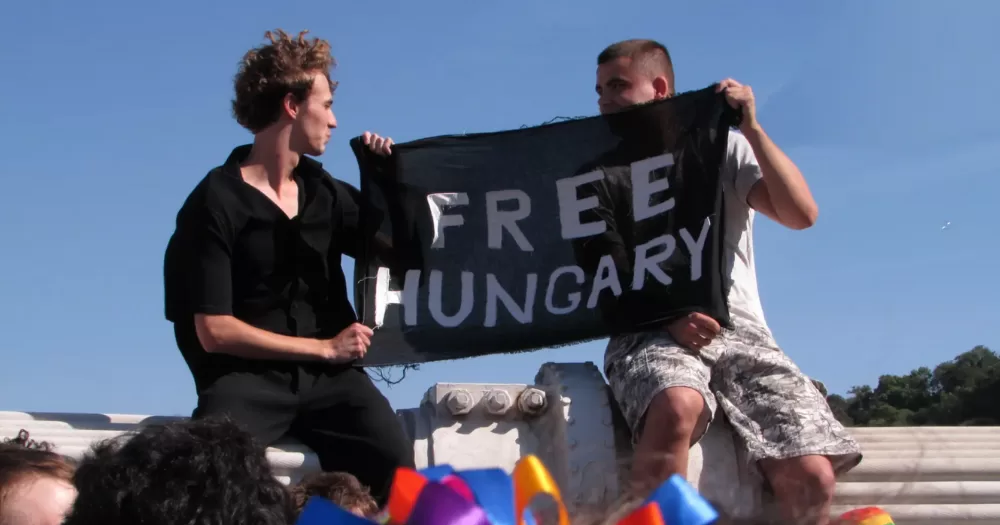Hungary has banned Pécs Pride, which was due to take place on October 4, 2025, marking the second Pride event to be prohibited in the country this year. The decision follows the earlier ban on Budapest Pride, though the capital’s march went ahead regardless, attracting a record-breaking 300,000 participants, 10 times its usual turnout, in a defiant display of resistance.
Pécs Pride holds particular significance as Hungary’s only Pride event outside Budapest. Organised by a private individual rather than the municipality, the event is more vulnerable under Hungary’s restrictive legislation.
On September 5, police officially banned the march, a decision later upheld by the country’s Supreme Court (Kúria). Unlike organisers in the capital, the Pécs Pride organiser now faces criminal prosecution with a potential one-year prison sentence, while participants risk heavy fines and surveillance through facial recognition technology.
Since amendments to the Assembly Act were introduced in April 2025, authorities have repeatedly invoked the new rules to block LGBTQ+ related gatherings, citing the sexual orientation or gender identity of organisers as grounds for prohibition. The amendments allow public events to be banned if they “depict or promote homosexuality or gender diversity,” and the provisions have been used to prevent protests on legal gender recognition, as well as Pride events.
In stark contrast, authorities in Hungary have reportedly approved five far-right counter demonstrations on the same day as the banned Pécs Pride, further escalating security concerns. Human rights organisations argue that the bans are discriminatory, violate European law, and form part of a wider strategy to erode democratic freedoms in Hungary.
Rémy Bonny, director of Forbidden Colours, has pledged to march in Pécs Pride despite the risks.
“We cannot let Orbán decide where democracy applies and where it doesn’t,” he said. “Hungary has become a Trojan horse for Russia’s authoritarian ideology inside the EU. If we allow this regime to criminalise freedom of assembly, we are surrendering the future of European democracy.”
Bonny has urged the European Commission to launch infringement proceedings and take Hungary to the Court of Justice of the European Union. He warns that the ban at Pécs Pride is not merely a question of minority rights, but a test of democratic resilience across the Union: “This is not a niche human rights issue, it is a national security threat to all of Europe.”
Did you know we have a team of wonderful runners taking part in this year’s Dublin Marathon and raising funds for GCN? You can support our athletes at this link.
© 2025 GCN (Gay Community News). All rights reserved.
Support GCN
GCN is a free, vital resource for Ireland’s LGBTQ+ community since 1988.
GCN is a trading name of National LGBT Federation CLG, a registered charity - Charity Number: 20034580.
GCN relies on the generous support of the community and allies to sustain the crucial work that we do. Producing GCN is costly, and, in an industry which has been hugely impacted by rising costs, we need your support to help sustain and grow this vital resource.
Supporting GCN for as little as €1.99 per month will help us continue our work as Ireland’s free, independent LGBTQ+ media.
Hey there!
Enjoying GCN?You have read all free 5 articles on GCN this month.
If you are enjoying GCN, how about sign up for free to access all articles? You can also log in from here if you already have an account.
